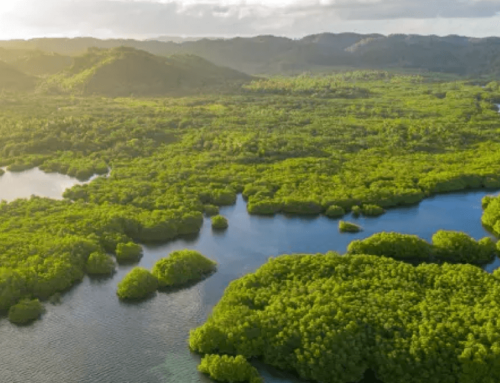Earth Day should be every day, not just one day in April. This international holiday can change minds and habits, reminding people of the planet’s importance and advocating for its protection and conservation all year. If you’re a parent wondering how to celebrate Earth Day every day with kids or friends, look no further.
What Is the History of Environmental Awareness?
After a catastrophic oil spill in 1969, Wisconsin Senator Gaylord Nelson decided the earth needed protection. He and others in the U.S. Congress decided to commemorate Earth Day every April. This sparked awareness and the modern environmental movement.
Over the last 50 years, millions of concerned citizens worldwide have taken to the streets, parks, and government offices in protest against the damage created by a century or more of industrial development. Since 1990, that movement has included hundreds of global organizations dedicated to cleaning our water and air and reducing pollution everywhere.
Earth-Friendly Celebration Ideas for the Family
Every day is a great day to get outside and celebrate Mother Earth! You can do your own thing or invite the kids, neighbors, or friends to participate in one of these great ideas. Check your local community newspaper or social media for outdoor or conservation-centered events.
Plant a Tree
What better way to celebrate our planet than by planting trees? Trees combat global warming, clear the air of toxins and provide oxygen for us to breathe. Trees provide shade and increase property values. You can get seeds or saplings and plant them in your yard.
Another idea is to start your own garden. You won’t have to worry about your kids consuming toxic pesticides if you’re growing your own organic fruits, herbs, and vegetables. You’ll also be saving emissions from not driving to buy them at the grocery store.
Encourage your kids to reduce and reuse by starting a compost pile. After breakfast, lunch, and dinner, use meal scraps to add nutrients to your soil, rather than taking up space in a landfill.
Get Creative With Recyclables
Make beautiful recycling bins to keep around the house. Decorate them with examples of what to put inside it. Glue pictures to the boxes and make sorting items a fun daily activity.
You can also make a celebrate Earth Day every day jar. Decorate the outside with colors, shapes, or items of importance to your family. You and your kids can write down simple, positive promises that you all will do to help the earth on pieces of paper. Put the jar in a central location, such as the family room or kitchen. Then periodically pick a piece of paper and plan a family activity to help the earth.
Another idea is to create a rain barrel that’s sturdy and decorative. Put it outside and collect water to use for plants, lawns, or pets. Be sure to check local or community ordinances to ensure this is allowed.
Go Outside and Play
Doctors recommend getting the kids out and exercising for at least 30 minutes each day. Outdoor activities, exercise, and a green lifestyle can improve physical and mental health. Youngsters who play outside earn higher grades, eat healthier foods, and sleep more soundly at night. They also soak up Vitamin D and feel more connected to nature.
Stay Inside and Play
If you’re dealing with bad weather, you and the kids can still have fun in ecologically sound ways inside. While it rains or snows, you all can enjoy a good book, watch interviews of climate heroes like Greta Thunberg or Jane Goodall, and enjoy a healthy meal. Stock up on eco-friendly coloring books or How to Fight Climate Change quizzes found online. Gather together and promote ways to live a zero-waste lifestyle.
You can also watch documentaries or family-friendly movies that promote conservation as a way of life. Talk about how everything we do, from what we eat to where we go, affects our planet and our way of life.
Other Ways to Celebrate Our Planet
Leave the Car at Home
Plenty of transportation alternatives help reduce the amount of gas and toxins you emit into the atmosphere. For example, consider using public transportation such as subways and buses where they’re available. Walk or ride your bike when it’s safe to do so. These options help the planet, but they’re also good for your overall health.
At the very least, you can carpool with other families from time to time.
Get Involved
Get together with your kids and environmental research issues in your state or city. What’s the most pressing issue? This can be anything from beach erosion to fire prevention. What are lawmakers doing?
Reach out to your state senator or representative. Ask them about their plan to help with climate issues. Join a youth climate activist organization and volunteer your time with them. You can also start an online petition to get more young people involved. It’s time to make your voices heard.
Other ideas include:
- Donating trees to be planted all over the world.
- Using eco-friendly or green cleaning supplies around the house.
- Taking your car into the shop for routine maintenance checks.
- Eliminating plastic bags or other single-use products from your household.
- Bringing your own reusable bags to stores.
- Avoiding next-day delivery services.
- Reading paperless documents on your laptop or mobile device rather than physical paper printings.
Want to learn more about how to celebrate Earth Day every day? Visit Spring Power & Gas for tips on how you can conserve energy while helping the planet at the same time.


